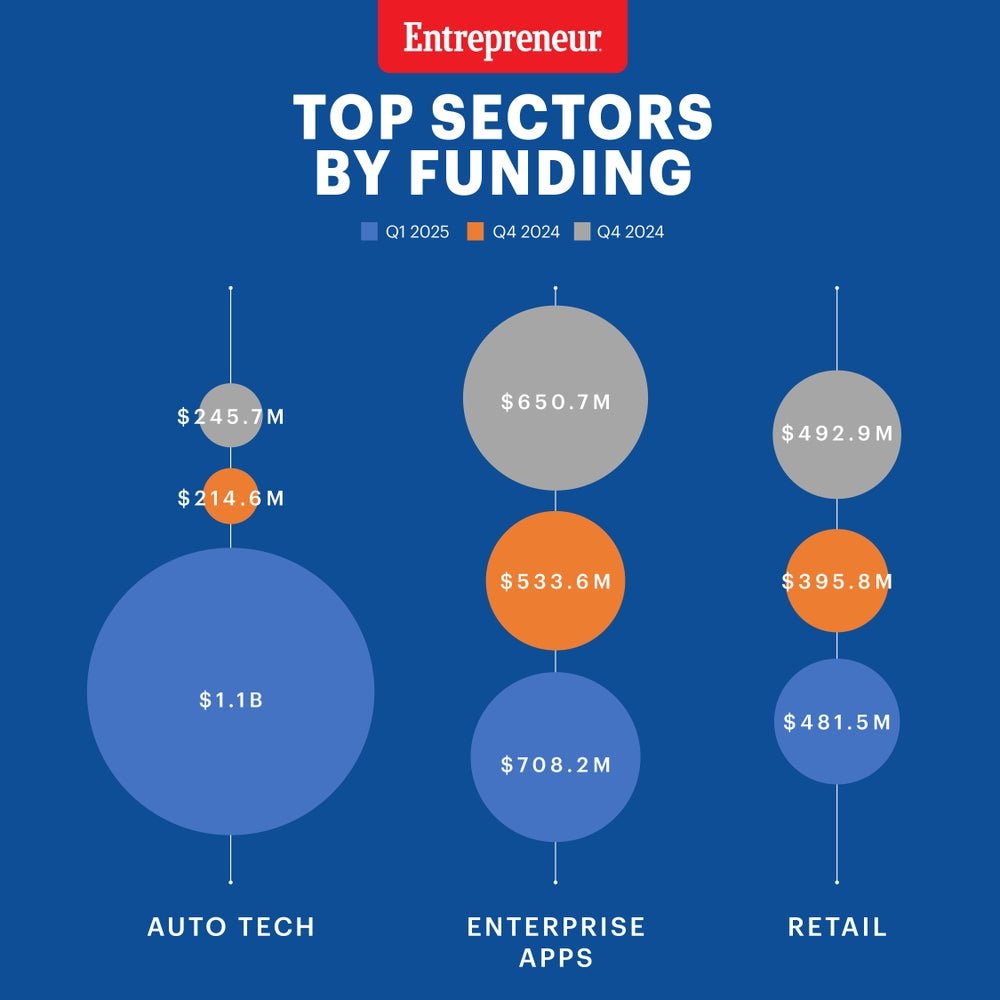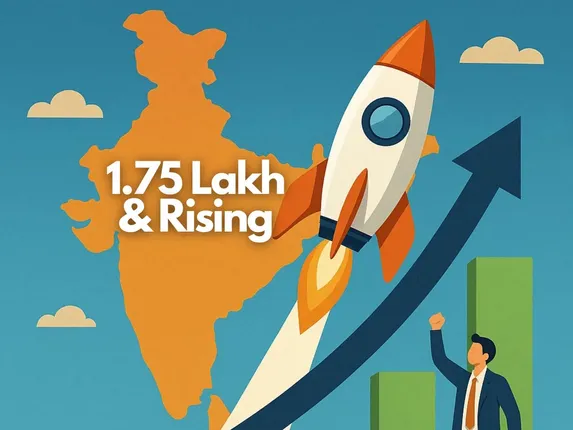India’s startup ecosystem in 2025 is a dynamic force, ranking as the world’s third-largest with over 120,000 startups and 112 unicorns, contributing significantly to a projected $7 trillion economy by 2030. While the Startup India Initiative, robust digital infrastructure, and a young, tech-savvy population have fueled this growth, a distinct group is steering the ecosystem toward unprecedented heights: second-time founders. These seasoned entrepreneurs, armed with experience from previous ventures, are leveraging their hard-earned insights, networks, and resilience to drive innovation, attract substantial funding, and build scalable businesses. This article explores why second-time founders are at the forefront of India’s startup boom in 2025, reshaping industries and setting a new standard for entrepreneurial success.
The Rise of the Seasoned Entrepreneur
Second-time founders are entrepreneurs who have previously launched a startup, whether it succeeded or failed, and are now building new ventures. In 2025, their influence is undeniable. A 2025 study by Primus Partners notes that 55% of unicorn founders in India held leadership roles before launching their ventures, with 30% boasting over 20 years of experience. This shift from young, first-time founders to seasoned professionals underscores a maturing ecosystem where domain expertise and industry networks are critical drivers of success.
Unlike the early 2010s, when fresh-out-of-college founders dominated India’s startup scene, second-time founders bring a wealth of practical knowledge. Their prior ventures, whether triumphant or not, provide lessons in navigating regulatory complexities, securing funding, and scaling operations. For instance, Manoj Dhanotiya, founder of MicroMitti, a proptech firm, previously scaled AiTrillion, a SaaS e-commerce platform. His experience in technology and management has enabled MicroMitti to democratize real estate investment, making it accessible to the common man.
Lessons from Failure: A Competitive Edge
One of the defining traits of second-time founders is their ability to learn from past failures. The Indian startup ecosystem has seen its share of high-profile failures, such as Bluelearn, which ceased operations in 2024 despite raising significant capital. Its founders cited challenges in scaling and monetizing their community-based model, lessons that are now shaping their next ventures. Second-time founders like these approach new startups with a refined understanding of market dynamics, customer needs, and operational pitfalls.

For example, Aadit Palicha and Kaivalya Vohra, founders of Zepto, India’s fastest-growing quick-commerce startup, previously launched KiranaKart, a grocery delivery venture that laid the groundwork for Zepto’s success. Their first venture taught them the intricacies of logistics and consumer behavior, enabling Zepto to capture 28% of the quick-commerce market in 2025 with 350 dark stores and plans to double by March. Raising over $1 billion in 2024, Zepto’s success reflects how prior experience translates into strategic execution.
Access to Capital and Investor Confidence
Second-time founders enjoy a significant advantage in securing funding. Investors in 2025 prioritize sustainable, profitable businesses over untested ideas, and experienced founders are seen as lower-risk bets. With India’s startup ecosystem attracting over $30 billion in funding in 2024, second-time founders command a disproportionate share due to their track records. Their ability to articulate clear business models, demonstrate market fit, and leverage existing networks makes them attractive to venture capitalists and angel investors.
Take Sprinto, a compliance automation startup founded by entrepreneurs with prior experience at Recruiterbox. Their expertise in SaaS enabled Sprinto to raise $20 million in 2024, focusing on AI-driven compliance solutions for global markets. Investors like Creaegis and Accel back such founders, confident in their ability to deliver scalable solutions. Similarly, Rohit Tandon, co-founder of Fraterniti Foods, built on his success with ventures like Blinkk and Yolo to redefine India’s dining landscape with innovative restaurant concepts.
Industry Networks and Mentorship
Second-time founders bring established networks that accelerate growth. Their connections with industry leaders, investors, and mentors provide access to resources that first-time founders often lack. Programs like Inc42’s ManagementX and D2CX Foundations emphasize learning from top founders, and second-time entrepreneurs are often at the forefront, sharing insights and mentoring new talent.
For instance, Asutosh Katyal of Captech Technologies, a second-time founder, leveraged his experience in digital transformation to develop eFORCE, India’s first labor management platform for construction. His network of infrastructure developers and prior project experience enabled Captech to digitize over 500 projects, ensuring efficiency and accountability. Such networks not only facilitate partnerships but also attract corporate support, as seen with initiatives like Facebook’s $50,000 grants to startups in partnership with Startup India.

Driving Innovation in Key Sectors
Second-time founders are disproportionately represented in high-growth sectors like fintech, AI, quick commerce, and healthtech. Their ability to identify market gaps and apply lessons from past ventures drives innovation. In fintech, founders like Ashneer Grover and Shashvat Nakrani of BharatPe built on their initial success with UPI-based payment solutions to introduce BharatSwipe, India’s first zero MDR card acceptance terminal, serving over 50 lakh merchants.
In AI, second-time founders are leading the charge in building indigenous models. Krutrim, founded by serial entrepreneur Bhavin Shah, became India’s first AI unicorn in 2024 by focusing on multilingual AI solutions for Indian languages. Shah’s prior ventures provided the operational expertise to scale Krutrim’s AI computing stack, aligning with the IndiaAI Mission’s goals. Similarly, healthtech startups like Niramai, led by second-time founders, leverage AI for breast cancer screening, addressing critical healthcare needs with scalable solutions.
Navigating Challenges with Resilience
India’s startup ecosystem is not without challenges—regulatory hurdles, talent shortages, and intense competition persist. Second-time founders are better equipped to navigate these obstacles. Their experience with compliance, as seen with Sprinto’s focus on global regulatory frameworks, allows them to anticipate and address legal complexities. Additionally, their understanding of talent acquisition helps them build strong teams, a critical factor in scaling ventures.
The shift toward sustainable business models in 2025 further favors second-time founders. Investors are moving away from the “splurging VC dollars” of the past, focusing on profitability and long-term viability. Founders like those at PhysicsWallah, who are pursuing acquisitions to bolster their multi-product edtech strategy, demonstrate how experience drives strategic consolidation.
Government Support and Ecosystem Maturity
The Startup India Initiative has been a catalyst for second-time founders, offering tax exemptions, fast-track patents, and funding through schemes like the Fund of Funds for Startups (₹10,000 crore) and the Deep Tech & Startup Fund (₹30,000 crore). These resources enable experienced founders to scale rapidly, particularly in deep-tech sectors. The initiative’s focus on mentorship and incubators, such as the Atal Incubation Centres, provides a platform for second-time founders to share expertise and guide new entrepreneurs.
The ecosystem’s maturity also plays a role. As India’s startup landscape evolves, the focus has shifted from short-term profits to sustainable growth. Second-time founders, with their proven ability to adapt and innovate, are driving this shift, creating businesses that address local challenges while competing globally.
Conclusion
In 2025, second-time founders are the linchpins of India’s startup boom, blending experience, resilience, and strategic vision to build transformative businesses. Their ability to learn from past ventures, secure investor confidence, leverage networks, and navigate challenges sets them apart in a competitive ecosystem. From quick-commerce leaders like Zepto to AI pioneers like Krutrim, these entrepreneurs are not just building companies—they are shaping India’s economic future. As the
Last Updated on Friday, July 11, 2025 6:20 am by Puneeth kamalapuram
